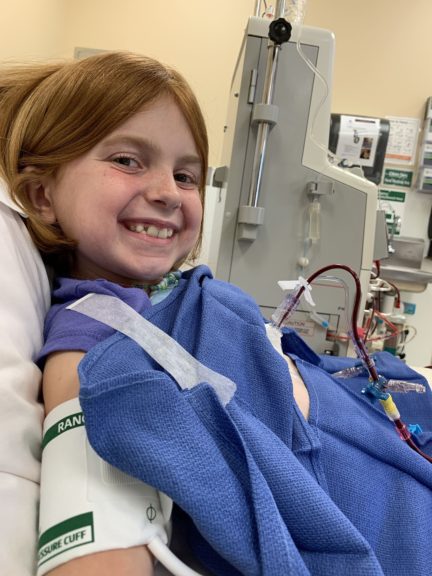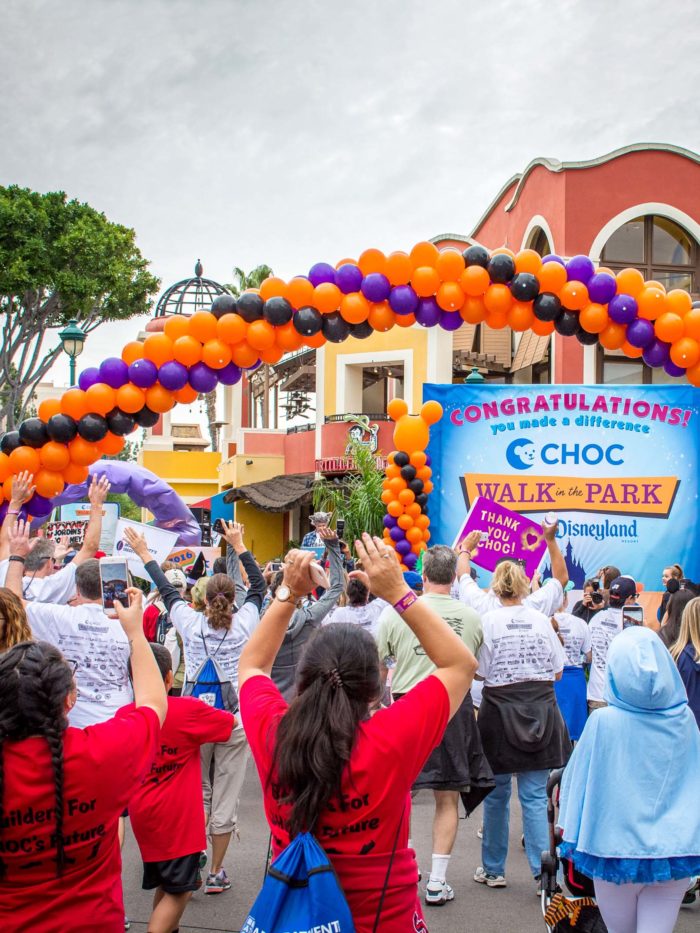When nine-year-old Alyssa was four, a doctor discovered she had high cholesterol. 200 would be high for an adult, and her levels were at 600, her mom Madelynn says.
“We were just at her normal 4-year-old checkup, and her pediatrician and I were stumped to see those numbers,” Madelynn recalls. “No under age 50 in our family has ever had a cholesterol problem before.”
Alyssa’s pediatrician recommended diet changes and fish oil. But during a check-up a few months later, her numbers hadn’t improved, so her pediatrician referred her to a cardiologist. That cardiologist confirmed Alyssa’s heart was healthy but couldn’t explain why her cholesterol levels were so high.
Back at their pediatrician’s office, a urine sample showed high levels of protein. They were referred to a CHOC, who was finally able to diagnose Alyssa with nephrotic syndrome caused by focal segmental glomerulosclerosis (FSGS), a rare kidney disorder. FSGS is a disease where scar tissue develops on the part of the kidney that filters waste from the blood. Symptoms can include swelling, weight gain and high cholesterol. FSGS can lead to kidney failure. Alyssa’s FSGS is caused by a genetic mutation.
FSGS is a rare condition. Currently, there is no cure for FSGS, although various research studies are in progress. To date, Alyssa has tried ten different medications and treatments—each of which are originally designed for other diseases, but she has not responded to those treatments.
“If my own mother were not a registered nurse, I think I would’ve been overwhelmed with the medical world we were thrust into upon diagnosis,” Madelynn says. “I’ve had to educate myself about a lot of these medicines, so I knew what I was putting into my daughter.”
Because Alyssa is immune-comprised, she gets sick more easily than others. She’s been admitted to CHOC several times during flu season when she just can’t fight off certain bugs.
Besides those unplanned admissions, Alyssa comes to CHOC every four to six weeks to see her nephrology team, including: Dr. Dorit Ben-Ezer, Dr. Patricia Veiga, Dr. Shoba Narayan, Dr. John Nguyen, and nurse Mary Stangeland. Alyssa’s care team monitors the progression of her FSGS with lab work.

“Her doctors are just as frustrated as we are that she hasn’t responded to all the treatments we’ve tried,” Madelynn says. “FSGS is rare, and her team wants to find new medications that will help her.”
Madelynn hopes to offer sympathy and comfort to other parents whose children are living with rare diseases.
“Parenting a child with a rare disease is worrisome and frustrating,” she says. “It’s important that we try to educate people about the need for further research.”



